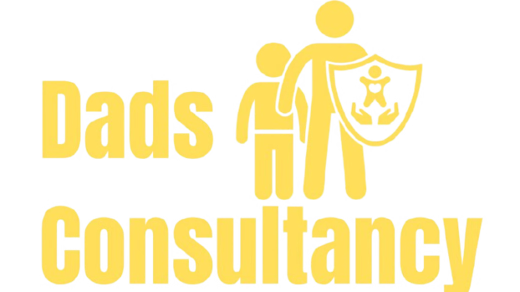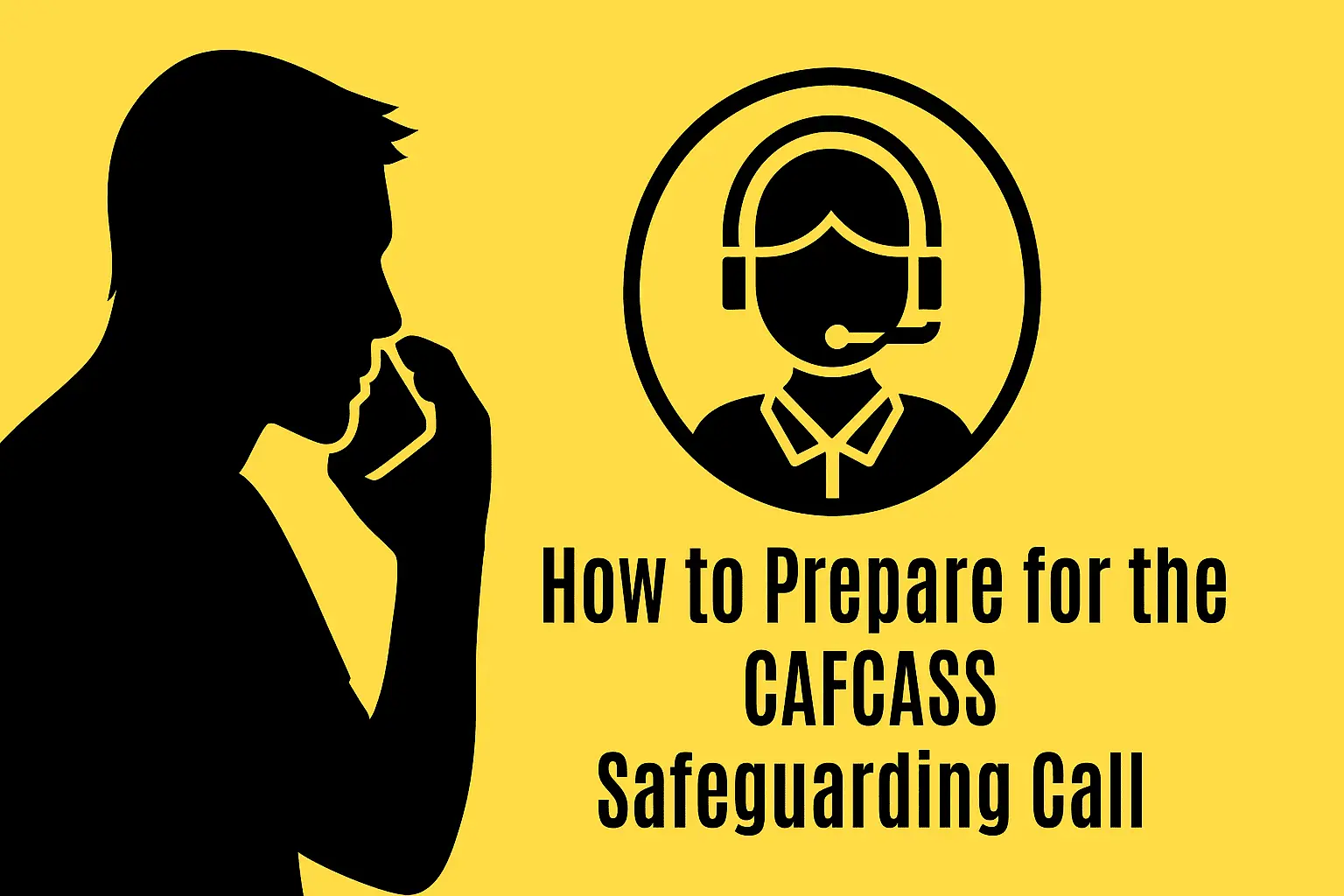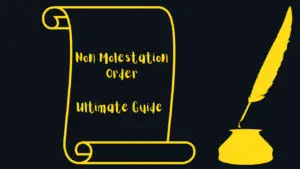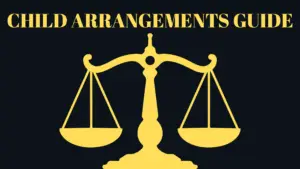Last Updated: Saturday, 6 September 2025
You’ve made your C100 application, and now you’ve been told to expect a call from CAFCASS. This is the initial safeguarding call, and for many fathers, it’s the first and most intimidating interaction with the family court system. You’re worried about saying the wrong thing, being tripped up, or how to respond to the inevitable allegations from your ex-partner. I have been subjected to significant emotional discomfort when preparing fathers for this call, as it feels like your entire case can be won or lost in a single 30-minute conversation.
The key to navigating this successfully is to understand its purpose and to prepare. This is not a casual chat; it is a formal interview where the officer is assessing risk. As a consultant who has been on both sides of these calls, I can tell you that a calm, prepared, and child-focused father makes the best impression. This guide will provide a clear, step-by-step plan to prepare you for the questions you will face and the answers you need to give.
Key Takeaways
- The call is purely about safeguarding. The CAFCASS officer’s only job is to identify any potential risks of harm to your child. They are not there to decide who is right or wrong in your dispute.
- Be prepared to respond to allegations calmly. Your ex-partner will have spoken to them, likely making allegations. You must deny what is untrue calmly and factually, without becoming angry or defensive.
- Frame your own concerns around your child’s welfare. When you raise your concerns about the mother, you must explain how her behaviour impacts the child. This is the difference between making a counter-allegation and raising a valid child welfare issue.
- Your goal is to secure interim contact. The most important tangible outcome you can ask for is a recommendation for safe, interim contact with your child to be put in place at the first hearing.
Want help preparing for your own CAFCASS call? Message us now on WhatsApp for one-to-one guidance.
Jump To
- Step 1: Understand the CAFCASS “Script”
- A Deep Dive: The Threshold for ‘Significant Harm’
- At a Glance: A Child-Focused Response vs. A Parent-Focused Response
- Common Mistakes Fathers Make on the Safeguarding Call
- FAQs: The CAFCASS Safeguarding Call
- Insider Insight from Lach
- Next Steps
Step 1: Understand the CAFCASS “Script”
CAFCASS officers have a set list of topics they must cover to assess risk. Understanding this “script” allows you to anticipate the questions and prepare your answers. The key areas they will ask both parents about are:
- The Allegations: They will outline the concerns raised by your ex-partner and ask for your response.
- Domestic Abuse: They will ask about any history of abuse in your relationship.
- Mental Health: They will ask about your mental health and any diagnoses or medication.
- Drug and Alcohol Use: They will ask about your current and past use of any substances.
- Your Concerns: They will ask you what your own safeguarding concerns are for your child.
A Script for Responding to Allegations and Raising Your Own Concerns
This is a practical example of how to respond to a false allegation and pivot to your own child-focused concerns.
CAFCASS: “The mother has alleged that you have been emotionally abusive towards her.”
Your Response: “Thank you for letting me know. I deny that allegation. Our relationship was breaking down and we were both unhappy, but I was not abusive. The police investigated these claims at the time and took no further action, which I am happy for you to confirm. My primary concern right now is for our daughter, Isabella. Her routine has been severely disrupted, she has been cut off from me and my family for three weeks, and I am worried about the emotional impact this separation is having on her.”
This response is effective because it is calm, factual, denies the allegation clearly, and immediately pivots to a valid, child-focused concern.
Avoid costly mistakes on your safeguarding call — chat with us today and get practical, fixed-fee support.
A Deep Dive: The Threshold for ‘Significant Harm’
This is a critical legal concept that underpins the entire safeguarding process. It’s the test that CAFCASS and Children’s Services use to decide how seriously to treat a case.
Official Definition: The term “significant harm” is defined in Section 31 of the Children Act 1989. Harm means ill-treatment or the impairment of health or development. “Significant” is not defined in the Act, but courts have established that it means harm that is “considerable, noteworthy or important.” A Child Protection Plan is only necessary if a child is assessed to be at risk of significant harm.
Breakdown of Components:
The legal wording can feel dense, but every safeguarding concept boils down to a few simple ideas. Breaking these components down helps you see what professionals mean – and what it means for your case as a father.
What is “Harm”?
What This Means For You: Harm is not just physical. It includes emotional abuse (e.g., repeatedly belittling a child or involving them in adult disputes), sexual abuse, and neglect (e.g., failing to provide adequate food, hygiene, or supervision).
What makes it “Significant”?
What This Means For You: This is a matter of professional judgment. A single argument between parents is unlikely to be seen as significant harm. However, a pattern of severe conflict in front of the child, or a parent’s substance misuse that directly impacts their ability to care for the child, would likely cross the threshold.
The Link to a Child Protection Plan
What This Means For You: If the CAFCASS officer believes the concerns meet the threshold for significant harm, they have a legal duty to make a referral to Children’s Services. This can lead to a Child Protection investigation and potentially a Child Protection Plan, which is a much more intrusive process.
A Real Life Scenario:
A mother alleges that the father can be “shouty” during arguments. The father admits that they have raised their voices at each other when the relationship was ending, but never in front of the child. He explains it was due to the stress of the separation. The CAFCASS officer notes the conflict but concludes it does not meet the threshold for significant harm to the child. The recommendation in the safeguarding letter is for a Section 7 report to explore co-parenting, not a referral to Children’s Services.
Common Pitfalls:
Even well-intentioned dads fall into the same traps during safeguarding. Knowing these pitfalls ahead of time gives you the chance to sidestep them and come across as calm, credible, and child-focused.
- Exaggerating your own concerns: Why this is a mistake: If you make very serious allegations that you cannot back up with evidence, you risk damaging your own credibility.
- Minimising serious issues: Why this is a mistake: If you have genuine concerns that your child is at risk of significant harm (e.g., due to the mother’s mental health relapse or substance misuse), you have a duty to raise them clearly.
- Confusing parental conflict with harm: Why this is a mistake: The court understands that separating parents are in conflict. You must explain how the conflict specifically and negatively impacts the child for it to be considered a safeguarding issue.
At a Glance: A Child-Focused Response vs. A Parent-Focused Response
The single biggest factor in a successful CAFCASS call is your ability to stay child-focused.
| Feature | A Child-Focused Response ✅ | A Parent-Focused Response ❌ |
|---|---|---|
| Responding to Allegations | ✅ “I deny that allegation. My concern is the impact the conflict is having on our daughter.” | ❌ “That’s a complete lie! She’s just trying to get back at me.” |
| Raising Your Concerns | ✅ “I’m worried about the mother’s mental health because when she has relapsed before, she has neglected our daughter’s needs.” | ❌ “She’s crazy and unstable and I want to prove it.” |
| Discussing Contact | ✅ “It’s vital for our daughter’s routine and stability that our bond is maintained. I am asking for an interim contact order.” | ❌ “I have a right to see my daughter 50/50.” |
| Goal | ✅ To show the officer you can prioritise your child’s welfare above the adult dispute. | ❌ To “win” the argument against your ex-partner. |
Common Mistakes Fathers Make on the Safeguarding Call
The safeguarding call is high-pressure, and many fathers slip up in predictable ways. These mistakes don’t just hurt your credibility – they can also shape the recommendations the officer makes. Here’s what to watch out for.
- Being Angry or Defensive. This is the number one mistake. It validates any negative description your ex-partner may have given. Take a deep breath before you answer every question.
- Waffling or Over-explaining. Keep your answers concise and factual. Don’t get drawn into long, convoluted stories about your relationship history. Stick to the point.
- Only Criticising the Mother. If your only focus is on listing her faults, you will appear to be part of the conflict, not part of the solution. A strategic approach is to raise 2-3 key, child-focused concerns.
- Forgetting to Ask for Contact. Don’t end the call without clearly stating that you are seeking a recommendation for interim contact to be restored as soon as possible. This is your primary goal.
Ready to prepare properly? Send us a WhatsApp message and we’ll help you get it right.
FAQs: The CAFCASS Safeguarding Call
Fathers facing this call often have the same urgent questions.
What is the purpose of the CAFCASS safeguarding call?
Its sole purpose is to gather information from both parents and from police and children’s services checks to identify if there are any risks of harm to the child, and to advise the court on the next steps for the first hearing.
What kind of questions will the CAFCASS officer ask me?
They will follow a script, asking about the allegations made against you, your own concerns, and any history of domestic abuse, mental health issues, or drug and alcohol use for both parents.
How should I respond if my ex has made false allegations against me?
A strategic approach is to calmly and clearly state that you deny the allegations. You can provide brief context if needed (e.g., “The police attended and took no action”), but the call is not the place for a word-for-word rebuttal. State that you will provide a full response in your formal statement to the court.
Should I tell CAFCASS about my own concerns about my ex-partner?
Yes, but you must frame them in terms of the risk to your child. For example, instead of saying “she has a bad temper,” you could say, “I have concerns about her emotional regulation, as I have seen her throw objects in the home, and I am worried about the impact of this on our child’s sense of safety.”
What should I say about my own mental health or past drug/alcohol use?
Honesty is the best policy. CAFCASS values insight. If you have had past issues, own them and explain what you have done to address them (e.g., therapy, support groups). If you are feeling stressed by the proceedings, say so, but explain your positive coping strategies.
Is it better to be called first or second by CAFCASS?
It makes no difference and signifies nothing. Some fathers feel they are on the “back foot” if called second, but it can be an advantage as it gives you the opportunity to directly respond to what has already been said.
How do I ask for contact with my child during the call?
Be direct and child-focused. Say something like: “It has been [X] weeks since I have seen my daughter, and I am very concerned about the emotional impact on her. I am asking CAFCASS to recommend an interim order for contact to begin as soon as possible, even if it is supervised in a contact centre to begin with.”
Should I admit to things like shouting in arguments?
Yes, if it’s true. Denying something that can be proven (e.g., via text messages) will destroy your credibility. It is far better to be honest, show insight, and provide context: “Yes, when our relationship was breaking down, we did have arguments where we both raised our voices. I regret that, and it was a reason we separated.”
What are the biggest mistakes a father can make on this call?
The biggest mistakes are being angry and defensive, only talking about the adult dispute instead of the child, being dishonest or lacking insight, and failing to clearly ask for a recommendation for contact to be restored.
What happens after the safeguarding call?
The CAFCASS officer will write a “safeguarding letter” to the court. This letter summarises the checks they have done, the positions of both parents, and their recommendations for the next steps in the case. You will receive this letter before your first court hearing.
Insider Insight from Lach
Preparation is the key to transforming anxiety into confidence for this call. The CAFCASS officer is assessing two things simultaneously: the level of risk and the level of reasonableness. An unprepared father often sounds angry and defensive, which raises the officer’s perception of risk. A prepared father sounds calm, reasonable, and child-focused, which lowers it. Your preparation doesn’t just help you give the ‘right’ answers; it helps you present yourself as a safe and capable parent.
Meet Lach, Your Guide at Dads Consultancy
Preparing for this call is one of the most important things you will do in your case. Our fixed-fee consultations can provide the expert, one-to-one preparation you need to face it with confidence.
Next Steps
At Dads Consultancy, we provide the specialised, expert support to move you from crisis to control. Our founder is a former CAFCASS officer who has made these calls and written these letters. We know exactly what is required and how to prepare you for it. We can help you with:
- Handling the CAFCASS Call: We provide intensive, one-to-one preparation, role-playing the call and helping you structure your answers to be calm, child-focused, and strategic.
- Navigating Section 7 Reports: If CAFCASS recommend a full report, we can help you prepare for every stage of that investigation.
- Drafting Powerful Position Statements: We guide you in writing the compelling statement you will need for your first court hearing in response
- Making Your C100 Application: We ensure your initial C100 application is completed flawlessly and strategically.
The safeguarding call is your first opportunity to present yourself to the court as a reasonable and loving father. The key is to act calmly, strategically, and with the benefit of expert guidance. WhatsApp us today for a strategic consultation, and let’s ensure you are fully prepared to make the best possible impression.
👉 Learn more about how we can support you or book a free consultation today
🧠 Insider Insight: Lach, our founder, is a qualified social worker who used to write Section 7 reports for CAFCASS – the very reports that influence court outcomes. Now he helps dads respond to them. Learn more about Lach’s background.




